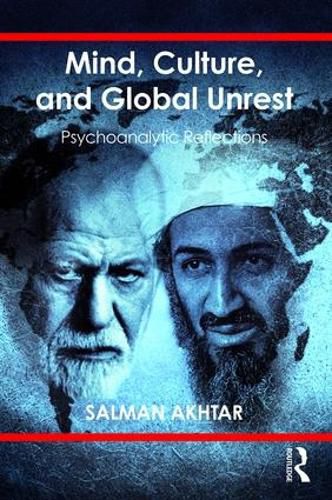Readings Newsletter
Become a Readings Member to make your shopping experience even easier.
Sign in or sign up for free!
You’re not far away from qualifying for FREE standard shipping within Australia
You’ve qualified for FREE standard shipping within Australia
The cart is loading…






In this compact and pithy book, the distinguished and prolific psychoanalyst Salman Akhtar steps out of his consulting room to address certain matters of urgent global concern. These include migration across national borders, the current refugee crisis, ethno-racial prejudice, subjective distress of minorities, and, above all, the forever-present ominous shadow of terrorism. Akhtar evolves and advocates a uniquely ‘anthropological psychoanalysis’ which is a blend of depth psychology and humanities, including sociology, economics, political science, history, and , of course, anthropology. He deconstructs what seems self-evident and confronts his readers with some socio-politically unpleasant realities, both within psychoanalysis and in the prevalent perspectives on the on-going turmoil and bloodshed in today’s world. His book is not all doom and gloom, however. It also delineates ameliorative strategies for dealing with the pain of the disenfranchised and the misguided violence of the radicalized. This is applied psychoanalysis at its best.
$9.00 standard shipping within Australia
FREE standard shipping within Australia for orders over $100.00
Express & International shipping calculated at checkout
In this compact and pithy book, the distinguished and prolific psychoanalyst Salman Akhtar steps out of his consulting room to address certain matters of urgent global concern. These include migration across national borders, the current refugee crisis, ethno-racial prejudice, subjective distress of minorities, and, above all, the forever-present ominous shadow of terrorism. Akhtar evolves and advocates a uniquely ‘anthropological psychoanalysis’ which is a blend of depth psychology and humanities, including sociology, economics, political science, history, and , of course, anthropology. He deconstructs what seems self-evident and confronts his readers with some socio-politically unpleasant realities, both within psychoanalysis and in the prevalent perspectives on the on-going turmoil and bloodshed in today’s world. His book is not all doom and gloom, however. It also delineates ameliorative strategies for dealing with the pain of the disenfranchised and the misguided violence of the radicalized. This is applied psychoanalysis at its best.